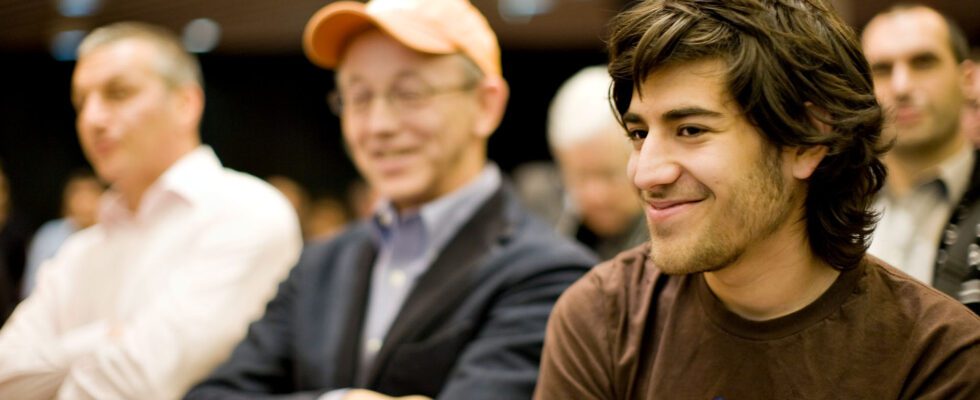A figure of freedom of access on the Internet and sharing of knowledge without constraint, Aaron Swartz committed suicide ten years ago ahead of a trial in the United States. Perceived as the offspring and martyr of the Internet, he was the subject of a documentary returning to his decisive role in favor of Internet users.
It was through a message published on January 11, 2023 that Susan Swartz marked the sad anniversary of the disappearance of Aaron, his son. Ten years ago, almost to the day, this young American committed suicide in his apartment. A month later, he should have faced a trial that would put him at risk of a 50-year prison sentence. He would be 36 today.
“The Internet’s Own Boy”
Aaron Swartz has since been considered a “martyr of the web”, because it was his activism in favor of free access to knowledge that ended up exposing him to lawsuits. His wrong? Having shared scientific papers by hacking into a database from MIT. His action had highlighted the challenges of free access to scientific matters in the face of the locking of copyright.
But Aaron Swartz was much more than a talented computer scientist capable of sucking up millions of documents from the JSTOR (Journal Storage) digital library. His contribution to the web is particularly vast. That’s why the other way to present Aaron Swartz is to describe him as the offspring of the Internet. This is the title of a documentary dedicated to him.
The Internet’s Own Boy: The Story of Aaron Swartz is a documentary released in 2014, a few months after the death of this pioneer in the fight for free access to information and knowledge. It was directed by Brian Knappenberger, who had previously become interested in hacktivists with We Are Legion: The Story of the Hacktivists — a documentary centered on Anonymous.
This documentary, in addition to showing an endearing and touching personality, but also engaged in the fight to free knowledge so that everyone can have access to it, has a double particularity. First, it is distributed without any restriction, thanks to the use of a free Creative Commons license – a structure that he helped to set up, in 2002, at the age of 14.
” We have decided, in the spirit of open access, to share the film digitally […]. Aaron has given a lot of his time and energy to the Creative Commons “, explained in 2013 Brian Knappenberger. To do otherwise would have been seen as an insult to his memory. This is why it circulates freely on YouTube, in P2P via the BitTorrent protocol and elsewhere.
The second singularity is that this documentary was entitled to crowdfunding. It is certainly not the first to have received public support nor the one that has raised the most money ($93,724 via 1,531 donations). There is something poignant, however, in the idea that Internet users have honored his fight by financing an open-access project to celebrate his action in this field.
